Frontier, emerging markets take centre stage at Vietnam Investment Forum
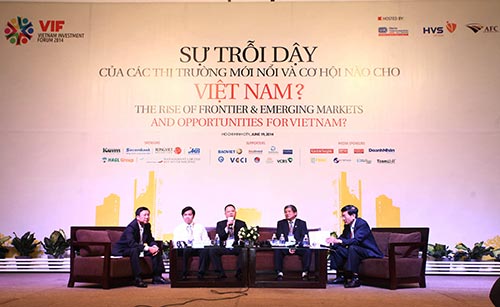
Faber, who publishes a widely read monthly investment newsletter “The Gloom Boom & Doom Report” which highlights unusual or unique investment opportunities, and leading experts both from Vietnam and abroad shared their views and joined discussions on Vietnam’s economy.
A central question to much of his work, “Has the world entered the terminal phase of a gigantic credit and asset bubble?” was posed and elaborated on at the forum.
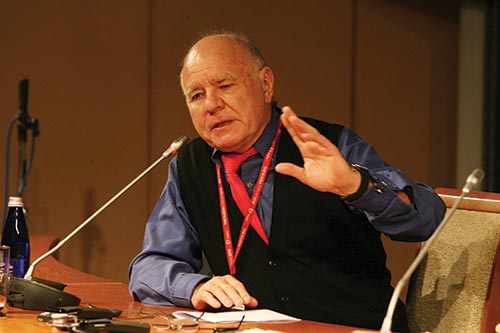
Dr. Marc Faber
| The universal problems are increasing geopolitical tensions and social strive, rising wealth and income inequality, potential health care issues like pandemics and “superbugs”, and food shortages. The problems of the west include excessive debt, artificially low interest rates lack of savings, unfunded liabilities, poor demographics, declining wages in real terms and declining standards of living, genetically modified food, and dysfunctional democracies and too much government interventions. The problems of emerging markets are excessive debt growth in recent years, high economic dependence on China, declining growth rates, poverty and lack of education, lack of water, interventions by foreign powers, and rising nationalism. My conclusions: All asset markets are inflated by expansionary monetary policies and excessive credit, and asset deflation in future is a certainty. Relative value may exist in selected markets and assets, and wealth inequality will lead to a changing political landscape. The emerging market of Vietnam has shown “stunning export performance.” Since mid-2008, the export index of Vietnam has exceeded that of the emerging markets’ average, and now Vietnam’s export index is about 270, almost doubling the emerging markets’ average of 140. |
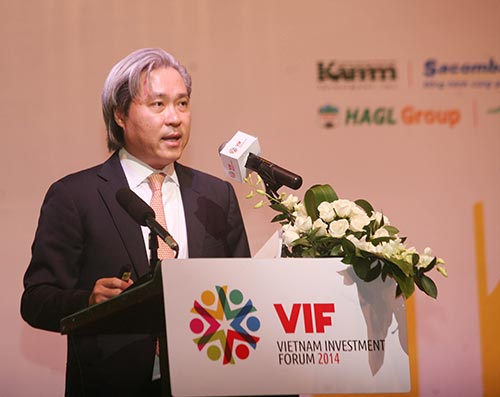
VinaCapital Group CEO Don Lam
| Vietnam is already a destination for foreign capital flows. As for foreign direct investment, FDI commitments to Vietnam remained unchanged. The MPI announced registered FDI for January – May of 2014 reached $5.51 billion, equivalent to 65.7 per cent of 2013, whereas disbursed FDI reached $4.6 billion, up 0.4 per cent. Processing and manufacturing continued to attract the most FDI with $3.92 billion recorded, followed by construction and real estate with $463 million and $399 million, respectively. As for portfolio investment, local participants in the Vietnamese equity markets drove the sell-off. Foreign investors have been net buyers on the Ho Chi Minh Stock Exchange every day since April 18, the longest stretch of purchases since January, as valuations declined to a four-month low. They added about $108 million to their holdings even as the benchmark VN Index slumped 2.2 percent. The index has dropped 9 per cent from this year’s peak of 608 on March 24. The gauge of Vietnam’s $52 billion stock market has a price-to-earnings ratio of 13.1, the lowest level on a weekly basis since January, as shown by data compiled by Bloomberg. That compares with a multiple of 14.8 for the MSCI Southeast Asia Index. As of the week ending Tuesday 27 May, liquidity increased 85 per cent in volume (100 million shares per day, excluding put-through), and down 13.3 per cent in value ($62 million per day) comparing to the beginning of May. The VN Index is expected to reach 640 for this year, up 10 per cent from February, and 27 per cent from December. In an encouraging development for FDI inflows, the head of Samsung Global Strategy Group has announced that his company would make multi-billion dollar investments in Vietnam in areas other than cell phones and electronic equipment. It would diversify into the construction of thermal power plants, shipyards, airports, and petrochemical factories. Samsung was committed to making Vietnam its production hub in Asia with the capacity to supply half of global sales in cell phones. We project a GDP growth rate at 5.5 – 6.0 per cent for 2014. |
>> Vietnamese stocks offer great value
>> ‘Mr Doom’ set to lift the gloom at VIF
>> Guru Faber to headline Vietnam Investment Forum
>> “Dr. Doom” bullish on Vietnam stocks
>> Investment guru ‘Mr Doom’ to speak in Vietnam
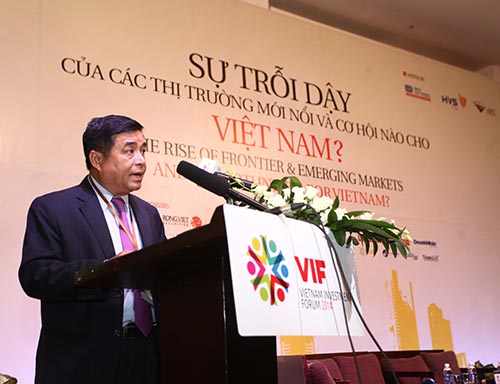
Deputy Minister of Planning and Investment Nguyen Chi Dung
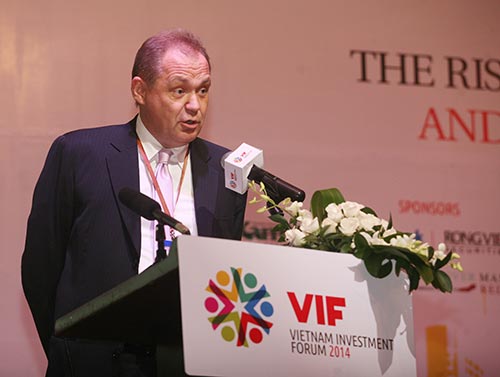
CEO of Asia Frontier Capital, Thomas Hugger
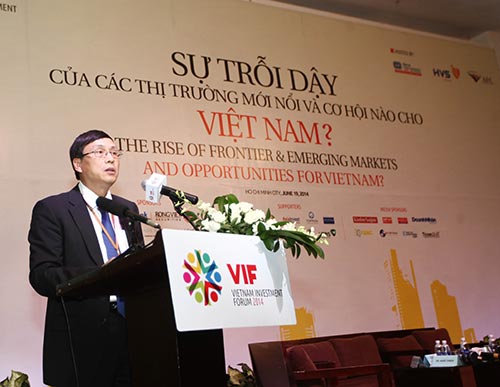
Chairman of State Securities Commission, Vu Bang
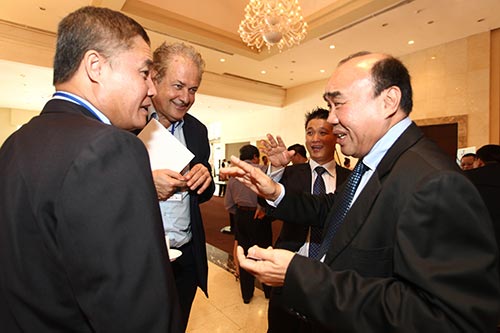
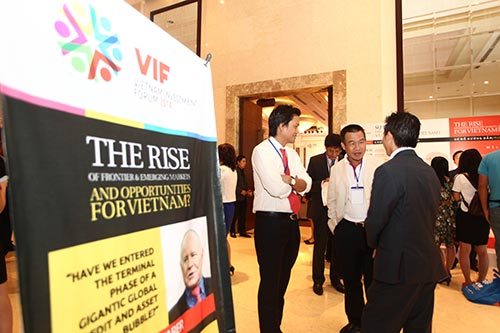
What the stars mean:
★ Poor ★ ★ Promising ★★★ Good ★★★★ Very good ★★★★★ Exceptional
Latest News
More News
- EU and Vietnam elevate relations to a comprehensive strategic partnership (January 29, 2026 | 15:22)
- Vietnam to lead trade growth in ASEAN (January 29, 2026 | 15:08)
- Japanese business outlook in Vietnam turns more optimistic (January 28, 2026 | 09:54)
- Foreign leaders extend congratulations to Party General Secretary To Lam (January 25, 2026 | 10:01)
- 14th National Party Congress wraps up with success (January 25, 2026 | 09:49)
- Congratulations from VFF Central Committee's int’l partners to 14th National Party Congress (January 25, 2026 | 09:46)
- 14th Party Central Committee unanimously elects To Lam as General Secretary (January 23, 2026 | 16:22)
- Worldwide congratulations underscore confidence in Vietnam’s 14th Party Congress (January 23, 2026 | 09:02)
- Political parties, organisations, int’l friends send congratulations to 14th National Party Congress (January 22, 2026 | 09:33)
- Press release on second working day of 14th National Party Congress (January 22, 2026 | 09:19)
















 Mobile Version
Mobile Version